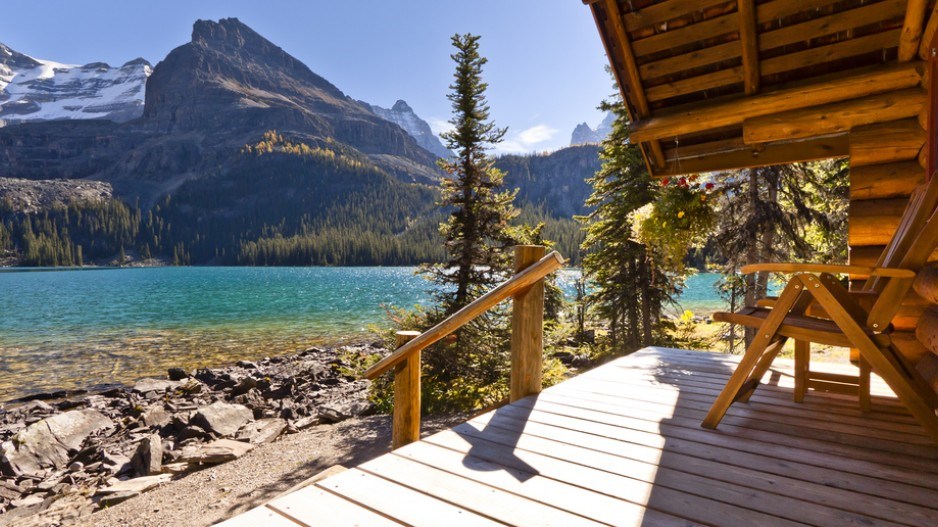A widely quoted national report claiming British Columbia’s recreational real estate market will see the biggest price slump east of the Atlantic is challenged by local realtors, developers and the latest sales statistics.
The annual Royal LePage Canada Recreational Property Report forecasts B.C.’s cottage country will see a 2.8 per cent drop in prices this year due to the province’s new speculation tax on secondary homes.
According to the report, the biggest price tax-driven price drop will be seen on the Sunshine Coast, where Royal LePage expects waterfront properties to decline 9.1 per cent and non-waterfront houses to fall 8.3 per cent in value. The report also forecasts oceanfront prices in the Comox Valley to drop 5 per cent this year.
But the Sunshine Coast, like the Comox Valley and most of rural B.C., is not subject to the speculation tax.
“I don’t agree with those [price] forecasts,” said Bruce Lasuta, a veteran Royal LePage agent in Sechelt on the Sunshine Coast. He said the Sunshine Coast is experiencing one of the strongest markets in memory.
Sunshine Coast detached house prices have increased 7.9 per cent since the speculation tax was introduced in February, according to the latest data from the Real Estate Board of Greater Vancouver. This compares with 0.1 per cent increase across Greater Vancouver in the same time frame.
In the past four months, the 225 detached house sales on the Sunshine Coast – population 25,000 – were higher than in New Westminster, South Delta or West Vancouver, all of which have much higher populations.
The Vancouver Island Real Estate Board reports that oceanfront home prices in the Comox Valley in the first four months of this year were up 20 per cent from the same time in 2017, and non-waterfront houses have soared 14 per cent in value in the same period. “We are not seeing a slowdown,” said a board spokeswoman.
The Okanagan, which is subject to the tax, will see an overall house price increase of more than six per cent this year, according to the Royal LePage study.
“I think those [Royal LePage report] numbers are made up in Toronto,” Lasuta added. “They don’t reflect what is really happening here.”
The speculation tax applies in the Metro Vancouver Regional District (excluding Bowen Island); the Capital Regional District (excluding the Gulf Islands), Kelowna-West Kelowna, Nanaimo-Lantzville, Abbotsford, Chilliwack and Mission.
Most islands are excluded from the tax, as is all of Vancouver Island north of Nanaimo, the Kamloops region, the Kootenays, the Cariboo and Northern B.C. B.C. ski resort communities are also excluded from the tax.
The tax rate for all properties subject to the tax is 0.5 per cent on the property value for British Columbians who are Canadian citizens or permanent residents, one per cent for out-of-province Canadians, and two per cent for foreign nationals.
B.C. resort developer Randy Trapp, president and CEO of Luxury Resorts West, told Western Investor that in areas where he is developing – such as Parksville and the Columbia Valley, where there is no speculation tax – he has seen a surge in construction inquiries and investor interest.
“Customers that were previously looking in Kelowna or Victoria are shifting their focus to areas not subject to the tax,” he said. “Albertan buyers are looking in the Columbia Valley, especially now that prices in Canmore have risen. Those looking in southern Vancouver Island are now looking north of Nanaimo.”
Trapp said that he believed there could be a flattening of B.C. recreational prices overall, with areas affected by the speculation tax likely seeing a decrease in recreational property values, while areas unaffected by the tax “had a distinct advantage” and would likely see values rise. He said, “For the savvy investor, this has created a great opportunity for those looking in certain geographical areas.”
Trapp added, “It’s critical that people understand the speculation tax is not a province-wide tax. Most resort properties don’t fall under the speculation tax.”
When asked about the projection of an overall slide in recreational prices, Phil Soper, president and CEO of Royal LePage, stood by the Royal LePage forecast.
“It is all about perception,” he said, “and people have the perception that B.C.’s speculation tax will negatively affect the recreation market.”
With files from Joannah Connolly



